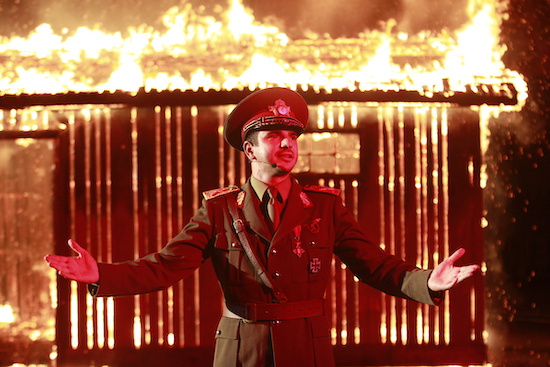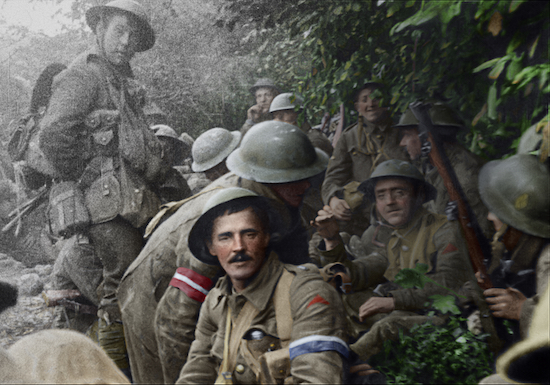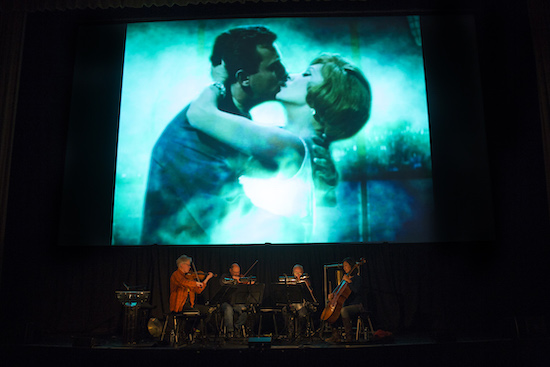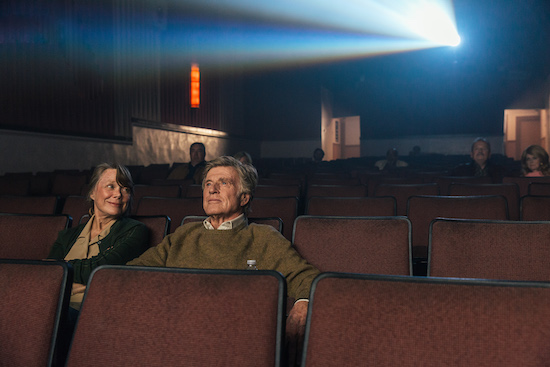The Old Man and the Gun
We live in uncertain times. Inevitably, this leads to grasping over matters of legacy – both personal and collective. Now in its 62nd year, London Film Festival has given a whole raft of filmmakers a platform to do just that. From all across the globe, many are looking to the past and using the power of fiction to bring important moments to life. The projected image becomes a tool to grapple with memory. All to define a history.
Some films grandly miss that mark. Mike Leigh’s Peterloo, though admirable, comes off as a bloated and overacted telling of the Peterloo Massacre, which strips some of the fire and fury out of one of the North of England’s most formative moments. It does give a voice to the reformers, but Peterloo often feels too concerned with using the event as a mirror on today, rather than letting it stand in its own right and allowing us to make those comparisons.
But when a film arrives that thrillingly upends what we know or how we perceive something, it feels like stumbling across an undiscovered landmark that you need to show everyone immediately.
Trust Radu Jude to deliver this in spades. The Romanian writer/director has made a career out of trying to understand the bumpy road of history, even in its most painful moments. 2015’s Aferim! used the classic Western formula to tell the story of slavery in 19th-century Romania in an exquisitely deadpan way. With I Do Not Care If We Go Down In History As Barbarians, Jude aims at something still raw and, for many, something still yet to be uncovered.

I Do Not Care If We Go Down In History As Barbarians
Part Day For Night metatheatre, part The Art Of Killing historical reckoning, Barbarians is fizzing with ideas. It is a film that demands your full attention for good reason. Theatrical director Mariana Marin (an electric Ioana Iacob, who introduces the film as herself before taking on the role of Marin) has been tasked to put on a public performance celebrating Romania’s victory on the Eastern Front. Unapologetically erudite, she uses this opportunity to highlight the war crimes of World War 2 Prime Minister, Ion Antonescu, particularly the ordering of the Odessa Massacre.
Played like a docu-drama, as Marin tries to get her actors in order and find the right costumes, it features some truly exhilarating exchanges. Fiery jousts between Marin and an apprehensive city official (Alexandru Dabija) see the two debating, not just how this story should be told, but also whether it should be told at all. Should Marin not focus on other massacres lest this one upset the public? And is there any merit in re-opening old wounds, particularly when it may fall on deaf ears as the public’s reaction to the performance at the film’s conclusion suggests?
It’s an uncompromisingly challenging film at over 2 hours 30 minutes. However, it’s also a passionately dextrous and intelligent one. One that doesn’t just ask us to take another look at history, but also to take a look at ourselves. Like the actors bickering over characters and costumes, what role do we want to play in history?
With Donbass, Sergei Loznitsa is more concerned with throwing his audience into the thick of a largely under-discussed history. From the mundane to the grotesque, Loznitsa avoids the broad strokes approach. Set during the mid-2010s war in eastern Ukraine, his aim is to magnify how the conflict affected the populace and how, in a post-truth era, it’s often difficult to know what sets two sides apart.
As each successive segment (thirteen in all) arrives, it feels like each is a significantly harder blow to the gut. Things start off in comical fashion, from the fake news recording dressed up like a TV shoot to the “government official” hired to reassure a maternity ward that they do actually have enough supplies, all a ruse.
But as the walls start to close in, as with Simeon (Alexander Zamurayev) and his attempt to retrieve his car or with the mob attacking a captive, the nightmare underneath is revealed. All this is studiously shot in a mockumentary style, placing you amongst it all but powerless to do anything. Ultimately, it’s an uncomfortable and unsettling watch that may struggle to find an audience outside of Loznitsa’s die-hard fans. But here, Loznitsa paints a scathing portrait of one of the most perplexing modern conflicts, yet one often overlooked by people outside of the region.

They Shall Not Grow Old
Receiving its world premiere at London Film Festival, and simulcast across the UK, They Shall Not Grow Old sees Peter Jackson’s technological prowess put to much better use than in all of The Hobbit films combined. His aim? To show the day-to-day experiences of World War I soldiers as never before.
Using state-of-the-art colourisation techniques and restoration technology, Jackson has breathed life into footage over a century old. It makes for an eerie effect, as though these soldiers were walking and talking among us today. The faces of these soldiers who lived and died for their country are burned into your brain.
Its narrow focus raises questions about whether we need another Brit-centric documentary that ignores the colonial experiences, and those of other countries. But Jackson’s focus does help to revitalise this story, warts and all, for a new generation, helping us to understand their experiences in a uniquely powerful and emotional way.
Guy Maddin’s The Green Fog, meanwhile, shows that revitalising old footage to create something new can be a source of fun too. An eccentric attempt to recreate cinema history, it stitches together clips from films and TV shows set in San Francisco to pay homage to Hitchcock’s Vertigo.

The Green Fog
As much a celebration of San Francisco’s history as a love-letter to Vertigo, The Green Fog plays fast and loose with the structure of the film, some 100 other people (including N*SYNC) stand in for James Stewart and Kim Novak. The result is a thrilling and delightfully silly little experiment; it’s just as fun spotting clips from cinema history as it is trying to piece together the story.
Reckoning with the past can also be a more personal endeavour. David Lowery’s The Old Man & The Gun is set to be Robert Redford’s swan song and, like Harry Dean Stanton in Lucky, it serves as a perfect coda to his career.
Based on the true story of Forrest Tucker, an infamous criminal who committed his last robbery at the age of 79, The Old Man & The Gun becomes a chance for Redford to flex his muscles one last time. The role of Tucker plays to all his strengths, letting him dip into roles across his career, from the mischievous rogue to the dashing romantic lead (opposite a sensational Sissy Spacek). It’s easy to forget this is even a true story at all, so much does Redford make it his own. He makes it look effortless, like this isn’t even work for him, and his charm is intoxicating.
Beautifully shot on 16mm film, Joe Anderson’s retro photography gives the film a warm, bittersweet feeling. The Old Man feels like looking back through a photo album full of memories, made even more poignant by the use of clips from old Redford films. Redford here feels as reluctant to hang up his hat as Tucker does, but knows that, if it really is his time, he’d rather go out his way and leave the right kind of legacy. And boy does he. In amongst all the intense, challenging critiques of history, it’s a treat to simply bask in the joy of a life well lived.
As for what London Film Festival 2018 leaves behind? This year marks a shift to make a much more positive footprint on the world of cinema. 38% of the films shown were directed by female directors, including the spectacularly dizzying Madeline’s Madeline. Compared to 2017, that’s a 14% increase.
They’ve also opened the door to more audiences, creating a number of initiatives to ensure more audiences get a chance to see the films on offer, from cheaper tickets to package deals to simulcast screenings across the country. The appointment of Tricia Tuttle as the new Director of BFI Festivals, announced at the Closing Gala, can also only mean good things for the future.
Of course, the work is far from over. But with such a wonderfully diverse range of stories being told this year, particularly from minority groups and countries whose films don’t often reach UK shores, London Film Festival is making steps to make sure it leaves behind the right legacy.



